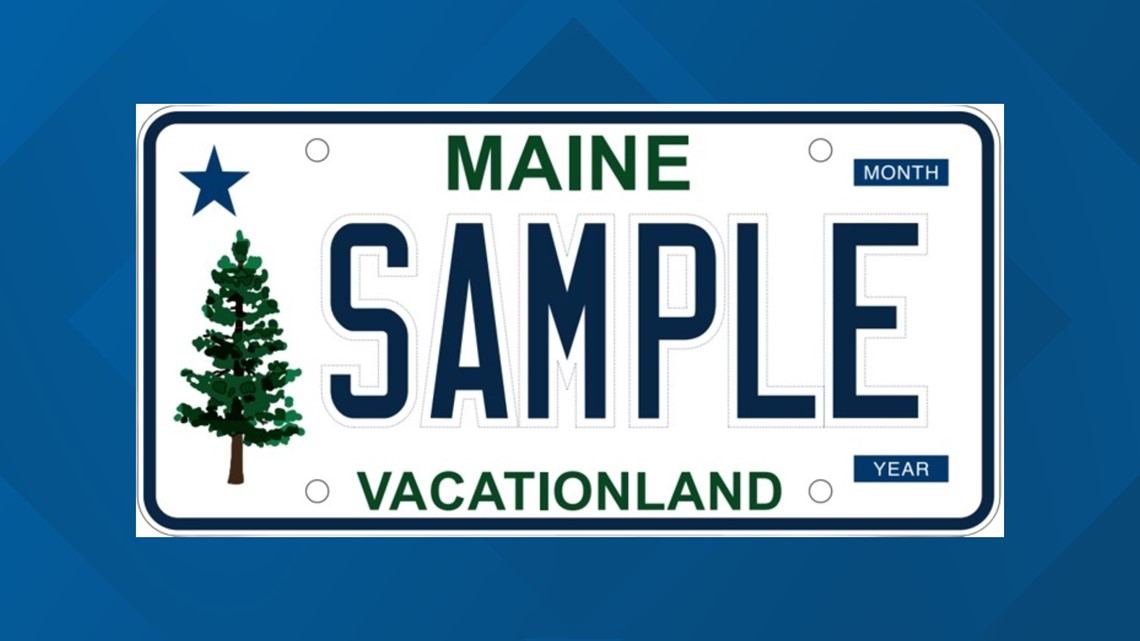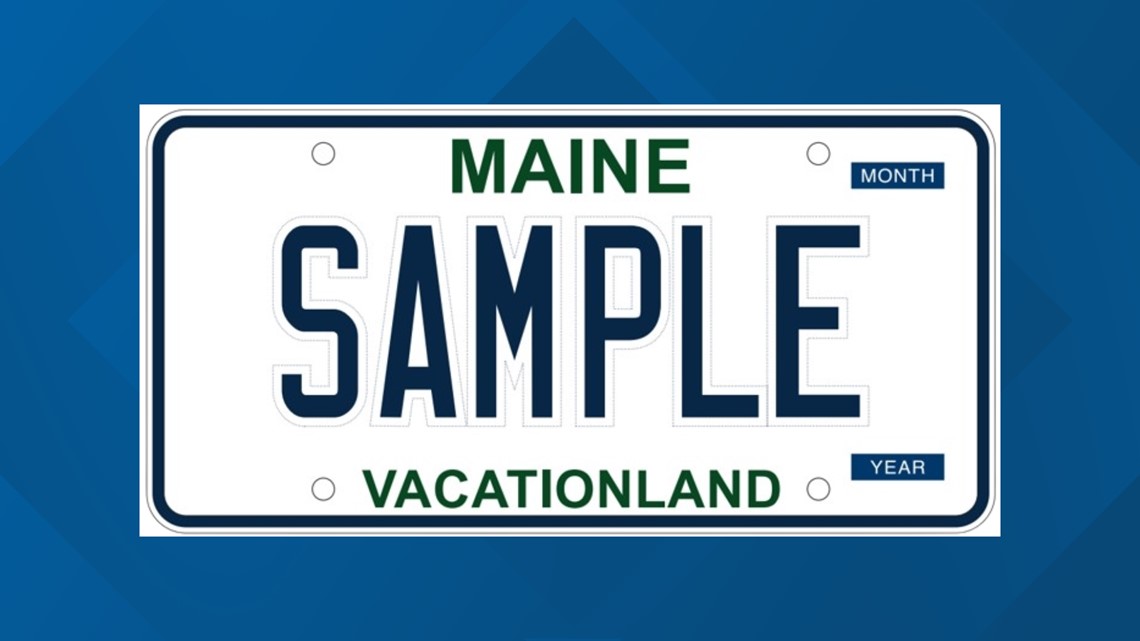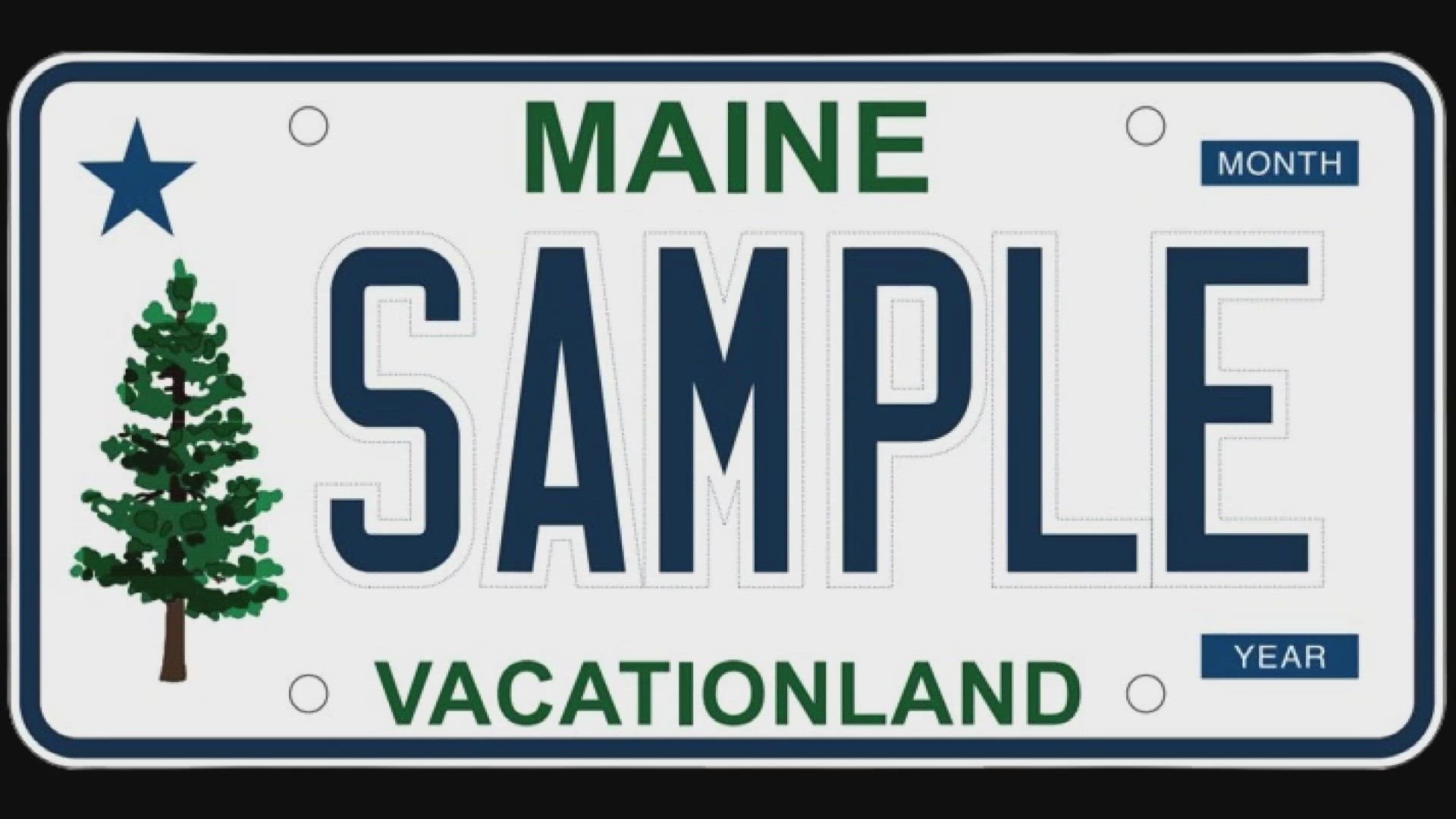AUGUSTA, Maine — Maine's general-issue license plate featuring the iconic chickadee design will eventually be taking flight, as the state unveiled the new "Pine Tree Plate" during a news conference Monday.
The new design is based on the 1901 Maine flag, featuring a navy star and a dark green pine tree.
The new standard-issue plate will replace the chickadee plate starting in May 2025, in accordance with LD 1965, “An Act to Authorize the Secretary of State to Provide a New General Issue of License Plates,” which became law last year.
The move comes after safety and compliance concerns regarding the readability of the chickadee license plates.
Since the license plates were originally issued in 1999, the secretary of state's office said deterioration has become an issue. The office cited plate identification issues during incidents requiring law enforcement, reduced toll collection, and decreased nighttime and weather visibility.
Maine Secretary of State Shenna Bellows argued the move is as practical as it is stylish, saying some chickadee plates had become worn down so badly, police officers couldn’t make out the numbers.
"Maine has had a number of different license plates over time, but the chickadee plate is one of the longest and is now almost 25 years old," she remarked. "Once you start checking out license plates on the roadway, you will see it is very common to see license plates that have deteriorated significantly."
Mainers who have a specialty plate will not be impacted by the change over to the pine tree plate, officials said.
The 2023 legislation authorizing the new plates called for two designs: One with the pine tree and north star and one plain plate with blue identification number and letter combinations.




Early candidates for the new plate featured a more cartoonish pine tree, as seen on many of the popular 1901 Maine flags. But legislators clamored for a lifelike tree, and Bellows found an answer in her artistic executive assistant Mary Catus.
Catus explained how she had been drawing at her desk and Bellows spotted her work.
"I had a flag design—that I had previously designed just for fun—in my cubicle at my desk," Catus said. "And the secretary was walking by and said 'Hey, this is amazing. What if we took this and revamped it?'"
For anyone wary of favoritism, they might ask the legislature’s transportation committee, who all chose Catus’ design. The midcoast native said she drew inspiration from the woods near her family home.
"I grew up on the coast of Maine, and so there are a few pine trees that I took reference pictures of and modeled it after," she explained.
Catus donated the design of the pine tree plate to the state for use on the plate. Waldale Manufacturing, a Nova Scotia company, has been contracted to manufacture the new plates.
"The Chickadee Plate will see over 900,000 replacements between May of 2025, and May 2026, a huge logistical undertaking coordinated by BMV staff, our municipal partners, and Waldale Manufacturing," Deputy Secretary of State for the Bureau of Motor Vehicles Cathie Curtis said in a press release.
State officials said Mainers who want to reserve their current plate numbers, including vanity plates and low-digit plates, should know that they don’t need to act right now—but the state plans to start a reservation process later this spring.
The Bureau of Motor Vehicles' current registrations tracking system doesn’t have a mechanism to see how long a registration plate has been in use. Chickadee plates that are returned to municipal offices and BMV branch offices will be retrieved by BMV staff and recycled, according to the state.
Mainers still driving with chickadee plates on their cars after April of 2026 face a simple traffic violation, possibly earning them a ticket.
"That would mean they haven't registered their car anyway," Bellows pointed out. And no, she clarified, putting new stickers on an old chickadee plate would not be allowed.
The bird is destined for the history books.

